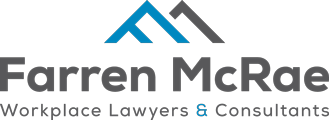Facilitated Discussions
FACILITATED DISCUSSIONS
Constructive, Effective Facilitated Discussions
Where issues or concerns impact individuals or a work team, then effective communication can be challenging. This can result in tension, misunderstandings, and lower productivity.
One way to proactively manage the situation is through a facilitated discussion or conversation.
Facilitated discussions allow individuals and teams to talk in a way that is safe, supportive, open and that sets the foundation for positive future communication.
During facilitated discussions, an independent facilitator helps ensure participants have the opportunity to express their thoughts, concerns, and feelings constructively.
The facilitator helps participants understand their emotional reaction and contributions to the situation and helps them explore options for progress or resolution.
They help participants to be listened to and heard in a way that reduces defensiveness or judgement so that all participants feel respected and that their opinions matter. The process is not about blame but assisting participants in finding a positive way forward.
These are flexible, confidential, and voluntary discussions that are less formal than mediation processes and are designed to stop problems from escalating and build problem-solving capacity within individuals and a team.
Outcomes and decisions from these discussions vary from situation to situation and can include individuals agreeing on ground rules for communication or managing their relationship in the future.
STOP PROBLEMS FROM ESCALATING
Where Facilitated Discussions Can Assist
- To act as a circuit breaker where tension or niggling communication problems haven’t yet erupted into outright conflict.
- To help to resolve concerns that come from a wider group towards management or other work teams.
- To assist employees who have concerns before or after a change process, machinery of government changes or mergers.
- To re-establish trust within and between teams after conflict or challenging situations.
- At the end of a discipline, grievance, or other investigative processes to conclude the matter and create a foundation for moving forward.
- To assist managers or team leaders, have hard conversations with team members, including performance or behaviour concerns.
- To assist an individual, team or executive build their problem solving and dispute resolution capacity and skills.
VOLUNTARY. CONFIDENTIAL
When Facilitated Discussions Are Appropriate
Not all situations lend themselves to facilitated discussions. The best outcomes arise where:
- Participation is voluntary and not mandated.
- All parties agree to keep discussions confidential and are willing to listen to different perspectives.
- The level of conflict is mild to moderate and has not erupted into direct hostility.
- There is a low risk of the emotional safety of participants.
- Participants understand that the process is not a blame-allocation or truth determination exercise but a process to assist parties to work more effectively together.
- All parties are keen to seek a resolution and way forward.
- The organisation is willing to support all parties in the process and assist them in implementing any resolution.
DEMONSTRATED EXPERIENCE
Wide-ranging and Extensive Expertise
Our workplace facilitated discussions experience covers a wide range of issues, including:
- Interpersonal difficulties and conflicts
- Change Management
- Performance and behaviour
- Access to learning and development opportunities
- Relieving and promotion opportunities
- Grievances
DEMONSTRATED EXPERIENCE
Wide-ranging and Extensive Expertise
Our workplace facilitated discussions experience covers a wide range of issues, including:
- Interpersonal difficulties and conflicts
- Change Management
- Performance and behaviour
- Access to learning and development opportunities
- Relieving and promotion opportunities
- Grievances
OUR APPROACH
Tailored and Innovative
No two conflicts or workplace issues are the same, which is why each facilitated discussion process is customised, having regard to the number and nature of the parties and issues involved.
Our approach ensures that all parties are consulted separately before the facilitated discussion to help the facilitator understand the issues, explain the process, help them to prepare and to ensure agreement to common ground-rules.
We then guide and manage the discussion to ensure that the process is respectful, sincere, and solution focused.
The parties are guided towards reaching a positive and pragmatic resolution that they can work with, and assisted in considering implementation and communication issues that could derail the agreement.
Parties leave the process with a deeper understanding of the causes of the issue, an awareness of other’s points of view and ways to move forward in the workplace.
Need a Facilitated Discussion?
Book a consultation to explore a facilitated discussion for your workplace issues.
Facilitated Discussion not what you need?
Why not consider workplace mediation?






